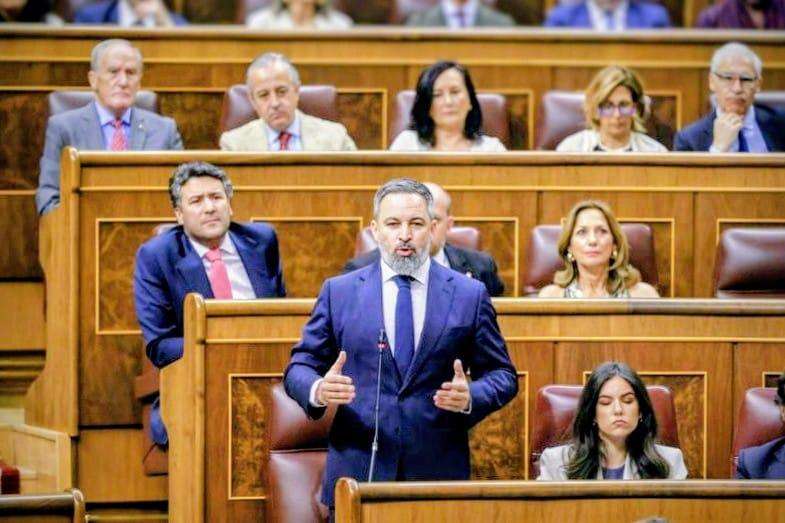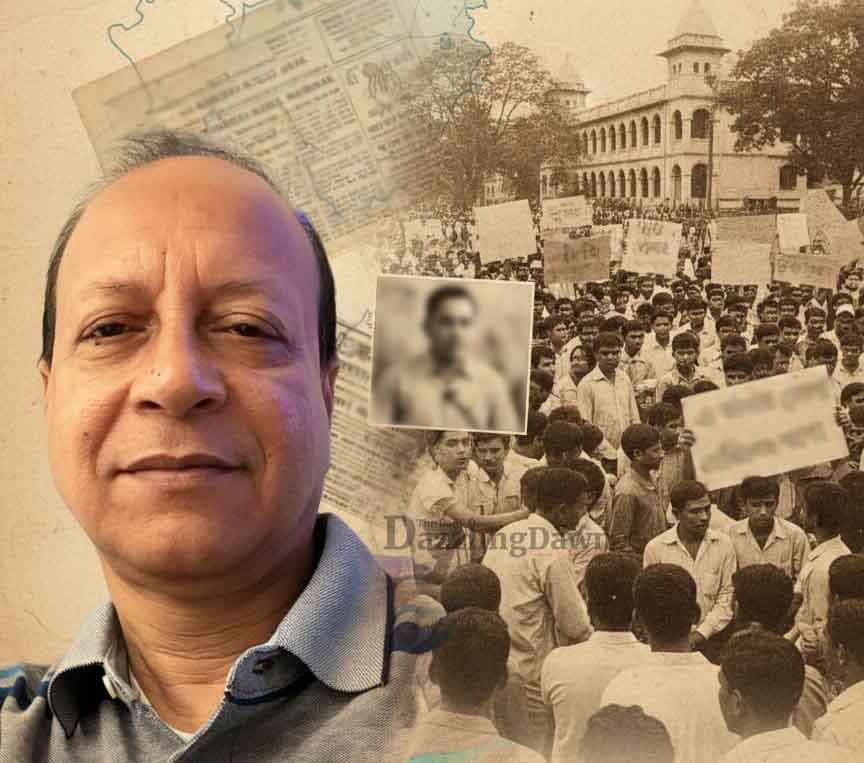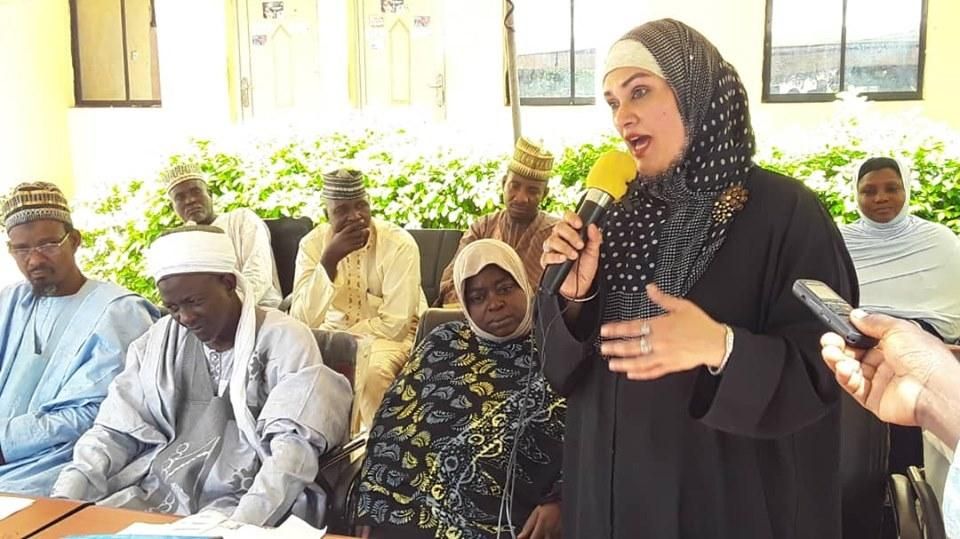Challenges due to the Global Financial and Economic Crisis
Bangladesh, like many developing nations, faces significant challenges as a result of the global economic crisis and the challenges mentioned above. Two of the most critical issues that need urgent attension are increased poverty and youth unemployment, both of which have far-reaching implications for the country's social and economic fabric.
1. Increased Poverty
The global economic crisis has exacerbated poverty levels in Bangladesh for several reasons:
- Reduced Exports and Income
Bangladesh's economy heavily depends on the export of ready-made garments, which accounts for more than 80% of its export earnings. Global economic slowdowns often reduce consumer spending in developed countries, leading to decreased demand for Bangladeshi exports. This decline directly impacts factory workers, many of whom are low-income earners, pushing them into poverty.
- Inflation and Rising Costs
The crisis often triggers inflation, making basic necessities such as food, fuel, and housing more expensive. Bangladesh, which imports a significant portion of its energy and food supplies, faces increased costs due to global price hikes. This disproportionally affects the poor, who spend a large share of their income on essentials.
Many Bangladeshi workers are employed abroad, particularly in Gulf countries. During global economic crises, these countries may face economic downturns, leading to layoffs or salary cuts for migrant workers. Reduced remittance inflows shrink household incomes in rural Bangladesh, where such money is a critical lifeline.
- Natural Disasters and Vulnerability
Bangladesh is highly vulnerable to climate change and natural disasters, such as cyclones and floods. When compounded with economic hardships, recovery from such events becomes even more difficult, further entrenching poverty.
2. Youth Unemployment
Youth unemployment is another major challenge, worsened by the economic crisis. It is a particularly concerning issue because Bangladesh has a large and growing youth population.
The slowdown in global economic activities has led to reduced investments and business closures, particularly in manufacturing and service sectors. This reduces job opportunities for young people entering the workforce, leading to a growing pool of unemployed youth.
- Mismatch in Skills and Job Market Demands
Many young individuals in Bangladesh lack the skills required by modern industries, such as IT, advanced manufacturing, or services. The global economic downturn limits resources to invest in skill development programs, leaving many youths unemployable in emerging industries.
- Impact on Education and Training
Economic crises often result in reduced government spending on education and vocational training. For Bangladesh, this means limited opportunities for skill enhancement, particularly for marginalized youth, further exacerbating unemployment.
Faced with limited opportunities domestically, skilled and educated youth often migrate abroad for better prospects. While this can increase remittance inflows in the short term, it leads to a depletion of talent in the local economy, affecting long-term growth.
The Impact of the Challenges on Social and Economic Aspects
The dual challenges of increased poverty and youth unemployment have significant implications for Bangladesh:
- Rising Inequality: The economic divide widens as low-income groups struggle to recover from shocks.
- Social Unrest: High unemployment among the youth can lead to frustration, crime, and social unrest, destabilizing communities.
- Health and Education: Increased poverty reduces access to healthcare and education, creating a cycle of deprivation.
- Economic Stagnation: A lack of productive employment opportunities for the youth hampers economic growth and innovation.
Therefore, it is crucial to address these challenges by adopting comprehensive strategies in Bangladesh, with a particular focus on reducing the wealth gap between the rich and poor and empowering the youth. By addressing these issues with targeted policies, Bangladesh can turn these challenges into opportunities for sustainable growth and development.
The following lists some of the conventional models (non-Islamic) that have been utilised to narrow the wealth gap between the rich and poor:
Rethinking the Trickle-Down Model: Strategies for Poverty Alleviation
In today’s complex economic environment, countries of all sizes and economic backgrounds, whether with Muslim-majority or minority populations, are increasingly turning to alternative entrepreneurship models to achieve their national economic goals. This shift is gaining traction as traditional systems like capitalism and trickle-down economics frequently fail to meet the aspirations of wider society, regardless of wealth or status. Trickle-down economics, which tends to benefit the affluent, often leaves marginalized communities underserved.
In fact the trickle-down model has been a subject of extensive debate and has largely failed to reduce poverty and inequality in many economies. In fact, this Western concept has often had the opposite effect, widening the gap between the rich and the poor.
The trickle-down model is an economic theory that suggests benefits provided to the wealthiest members of society, typically through tax cuts, increased investments, or economic incentives, will eventually "trickle down" to lower-income groups. The idea is that as the wealthy accumulate more resources, they will invest in businesses, create jobs, and stimulate economic growth, ultimately benefiting the broader population.
Key Concepts of the Trickle-Down Model:
- Wealth Creation for the Wealthy: Proponents believe that by allowing the wealthy and corporations to retain more wealth (through tax cuts, deregulation, or incentives), they will have more capital to invest in businesses, leading to job creation and economic expansion.
- Job Creation and Economic Growth: It is assumed that increased investment by the wealthy will result in economic growth, which will, in turn, benefit lower-income groups through job opportunities, higher wages, and improved living conditions.
- Lifting All Boats: The model suggests that prosperity for the wealthy will eventually "trickle down" to others, reducing inequality and fostering a healthier economy.
Criticisms:
- Inequality remains or worsens: Critics argue that wealth tends to concentrate further among the wealthy rather than trickling down, leading to increased inequality and leaving poorer communities behind.
- Job creation not guaranteed: Increased investment doesn’t always lead to enough jobs or wage increases for lower-income groups.
- Structural barriers: Factors such as access to education, healthcare, and social mobility are often not addressed, leading to persistent poverty despite economic growth.
Grameen Bank and Poverty Alleviation Strategies
Bangladesh is globally recognized as the birthplace of microcredit, an innovative financial model that gained widespread acclaim thanks to the pioneering efforts of Professor Muhammad Yunus.
The birthplace of microcredit is often attributed to Bangladesh, where the concept was pioneered by Dr. Muhammad Yunus in the 1970s. Dr. Yunus, an economist and professor, started lending small amounts of money to poor individuals, particularly women, in the village of Jobra, near the city of Chittagong.
This effort led to the creation of the Grameen Bank in 1983, which institutionalized the practice of providing small loans to the poor without requiring collateral. The initiative aimed to empower people to start small businesses and break the cycle of poverty. For his work, Dr. Yunus and the Grameen Bank were jointly awarded the Nobel Peace Prize in 2006.
Microcredit has since become a global movement, adapted in various forms in many countries.
However, the association of Grameen Bank with riba (interest) is a significant concern for many Muslims, particularly in contexts where Islamic principles guide financial practices. To understand this issue in detail, we need to explore the concept of riba, its implications in Islamic finance, and how Grameen Bank operates.
What is Riba in Islamic Finance?
- Definition: Riba, in Islamic jurisprudence, refers to any form of usury or unjust increase in wealth that is earned without equivalent countervalue. It is explicitly prohibited in the Qur'an (e.g., Surah Al-Baqarah: 2:275-279) and by the Hadith of the Prophet Muhammad (SAW). These surahs and hadith promote trade as a more just alternative to transactions based solely on riba.
- Replacement: Shifting away from riba and embracing trade promotes financial systems that foster investment, effort, and mutual agreement, as opposed to interest-based transactions that contribute to inequality and economic hardship.
- Principle: Islamic finance is rooted in the principles of fairness, justice, and risk-sharing, where profits should only arise from legitimate trade or investment, not from predetermined or excessive interest rates.
How Does Grameen Bank Operate?
Grameen Bank provides small loans (microcredit) to poor individuals, primarily women, to help them start or sustain small businesses. The bank:
- Charges interest on its loans, which borrowers repay in instalments.
- Does not require traditional collateral but relies on group guarantees or peer support for repayment.
Why is Grameen Bank Associated with Riba?
Many Muslims perceive Grameen Bank’s interest-charging model as a form of riba because:
- The interest rates charged by Grameen Bank, though designed to cover operational costs and ensure sustainability, are seen as a fixed return on capital lent, which falls under the definition of riba.
- Critics argue that even if the bank's intentions are noble, charging interest, even at lower rates, still contravenes Islamic principles.
- The focus on vulnerable borrowers makes this concern even more pronounced, as it might appear to some as exploiting the economically disadvantaged, a practice condemned in Islamic ethics.
- The Debate Among Scholars and Practitioners
- Supporters of Grameen Bank:
- Argue that its mission aligns with Islamic values of reducing poverty and empowering marginalized communities.
- Claim the interest charged is not exploitative but rather necessary for operational sustainability and ensuring the institution can continue serving the poor.
- Highlight the absence of alternative financial systems that could replace interest-based models in such contexts.
Interest vs. Profit and Loss in Islamic Finance
Islamic finance prohibits riba (usury or interest) and emphasizes profit-and-loss sharing (PLS). Instead of charging fixed interest, Islamic financial instruments aim to share risks and rewards between lenders and borrowers, aligning more closely with ethical principles in Islam.
Grameen Bank's methods have been transformative in addressing financial exclusion, but its approach to navigating religious sensitivities reveals the tension between conventional finance models and culturally specific expectations. For Muslim clients, the distinction between interest and profit is not merely semantic. it reflects deeply held ethical and spiritual beliefs. Misrepresenting financial products can risk both trust and the long-term viability of microfinance efforts in Muslim-majority contexts.
To appeal to Muslim clients, some institutions, including Grameen Bank, have attempted to frame or structure their financial products in ways that appear to comply with Islamic principles. This might involve:
- Rebranding Interest as Administrative fees or PLS:
- Instead of explicitly calling their earnings "interest," institutions might label them as "profit sharing" or "administrative fees."
- They emphasize the service provided (e.g., facilitating credit and training) rather than the cost of borrowing.
- Sugar-Coating Practices:
- Marketing efforts may highlight the bank's social impact, such as poverty alleviation and women's empowerment, overshadowing traditional concerns about riba.
- By framing repayments as a cooperative model, Grameen Bank can attract clients who are otherwise wary of conventional loans.
- Adaptations in Terminology and Practices:
In some cases, Grameen Bank may present its loan repayments as akin to a murabaha (cost-plus financing), where the lender purchases goods and resells them to the borrower at a marked-up price, with repayment in instalments.
Criticisms of the microfinance approach in general
- Lack of Genuine Islamic Compliance:
- Critics argue that merely rebranding interest as profit does not align with the essence of Islamic finance, which seeks risk-sharing and mutual benefit, rather than fixed, predetermined returns.
- Exploitative Practices:
- Some have alleged that microfinance institutions, including Grameen Bank, impose high effective interest rates, leading to over-indebtedness and financial strain on borrowers, contrary to the ethical principles of Islamic finance.
- Undermining Islamic Financial Institutions:
- Imitating Islamic finance terminology without genuinely adhering to its principles risks undermining the credibility of truly Sharia-compliant financial institutions.
Islamic Social Entrepreneurship Model: Adherence to the Prohibition of Riba and Promotion of Trade
Dr. Thamina (Samina) Anwar has developed an innovative model rooted in the Quran, hadith, and sunnah to address the fundamental prohibition of riba in Islamic financing. These models are tailored to offer entrepreneurship solutions that align with Sharia principles, ensuring compliance by avoiding any reliance on interest-based transactions.
Let us begin by explaining the significance of trade in Islam. Trade holds immense importance as it was established as a lawful and ethical alternative to riba.
In Surah Al-Baqarah, it is stated that “But Allah has permitted trading and forbidden interest.” Quran [2:275]
This Surah highlights a key principle in Islamic finance. It contrasts interest-based transactions (riba) with trade-based transactions.
- Interest (Riba): In this context, riba refers to the excess or fixed additional amount charged on loans or debts, often leading to exploitation, especially of those in need. It is considered unjust and oppressive in Islamic teachings.
- Permitted Trading: The surah emphasizes that trade, commerce, and mutual transactions are permissible in Islam. These involve a fair exchange of goods or services and are based on mutual consent and risk-sharing.
This surah serves as a foundation for Islamic social entreprenuership, which strive to eliminate interest-based transactions and promote ethical investments and trade.
A Transformative Shift in Thinking
Ultimately, the conventional models such as the trickle-down and the Grameen model have proven ineffective in reducing poverty and improving social equity. Futhermore, Muslims need an economic model which adheres to the teachings from the Quran, sunnah and hadith.
Dr. Thamina (Samina) Anwar new book entitled: Think like an Islamic Social Enterprenuer is schduled to be launced very shortly eithter in Malaysia or United Arab Emirates. This book is essential for empowering Muslims through entrepreneurship, particularly in an era where poverty is rising and youth unrest is spreading across the Muslim world.
Indeed, Islamic social entrepreneurship offers a transformative approach to business, shifting the focus from mere profit maximization to fulfilling broader social, ethical, and spiritual responsibilities. This paradigm encourages entrepreneurs to view their ventures not just as business opportunities, but as acts of ‘ibādah (worship), aligning their goals with values such as fairness, compassion, and service to others. Central to this approach is the ethical distribution and circulation of wealth, facilitated through practices of social responsibility and charity, which ensure a more equitable society and promote economic justice.
Furthermore, Islamic social entrepreneurship emphasizes ‘ummāh (community) centric development, encouraging entrepreneurs to create businesses that uplift and support the well-being of the ‘ummāh, promote social cohesion, and address the needs of marginalized groups. This model also advocates for sustainable practices, with a strong emphasis on the responsible use of resources to benefit both society and the environment. Integrity, trust, and transparency in business transactions are key values, ensuring that entrepreneurs uphold honest dealings and foster strong relationships with customers and stakeholders.
Ultimately, Islamic social entrepreneurship defines success holistically, not solely in financial terms, but through spiritual fulfilment, social impact, and positive contributions to society. By embracing these principles, entrepreneurs are guided to create ventures that not only achieve economic success but also contribute to the betterment of both their communities and their afterlife. Through this mindset shift, Islamic social entrepreneurship redefines how business should be conducted, offering an ethical and socially responsible framework for entrepreneurship.
So what is Islamic Social Entrepreneurship?
Currently, there is no universally accepted definition of Islamic Social Entrepreneurship. However, Dr. Thamina (Samina) Anwar provides a definition in her upcoming book, where she explores and elaborates on the concept in detail.
Nonetheless, it can be revealed that Islamic social entrepreneurship integrates Islamic principles with business practices in a way that elevates entrepreneurship to a tool for achieving broader societal goals. In this framework, business is viewed not simply as a means to generate profit, but as an act of ‘ibādah (worship). The central objective of Islamic social entrepreneurship is to attain al-falāh, a concept that signifies success both in this dūnyā (world) and in the al-Ākhirah (the hereafter). This success is not defined solely by material wealth but by the balance of worldly prosperity and spiritual fulfilment, which are achieved through acts of service to humanity, ethical practices, and social responsibility (Anwar, 2017).
Islamic social entrepreneurs adhere to a set of ethical principles grounded in the teachings of the Quran, sunnah and Hadith. These principles guide them to conduct business with integrity, transparency, fairness, and social justice. Furthermore, the pursuit of innovation is encouraged, but innovation must align with the values of Islamic ethics. Entrepreneurs are urged to use their businesses to create positive social change and address key societal challenges such as poverty, inequality, and environmental degradation. By integrating both profit-making and social responsibility, Islamic social entrepreneurs seek to contribute to the common good while also fulfilling their spiritual duties (Anwar, 2017).
The ventures created through Islamic social entrepreneurship are not only focused on generating profit but are also designed to enhance ‘ummāh (community) welfare, uphold justice, and promote sustainability. These ventures prioritize the well-being of society and the environment while ensuring that business operations are ethically sound. By adopting a comprehensive approach that incorporates both material and spiritual goals, Islamic social entrepreneurship ensures that all business activities are aligned with Islamic teachings and contribute positively to the larger societal fabric (Anwar, 2017).
Summary: Redefining Business through Islamic Social Entrepreneurship
Islamic social entrepreneurship redefines success by integrating economic, social, and spiritual goals. This approach:
- Encourages Integrity and Transparency: Upholding honest dealings in all business practices.
- Fosters Innovation: Leveraging creativity to solve societal challenges while adhering to Islamic ethics.
- Prioritizes the Community: Ensuring ventures benefit the ‘ummāh and promote cohesion.
By embracing these principles, Islamic social entrepreneurship offers a viable path for addressing pressing challenges, empowering youth, and fostering equitable economic development in Bangladesh and beyond.
------
About the Author:
Dr. Thamina (Samina) Anwar stands as the visionary force behind Trade Not Riba (www.tradenotriba.com), an initiative dedicated to championing Islamic Social Entrepreneurship over interest/usury, appealing to both Muslim and non-Muslim communities. Her groundbreaking models in Islamic Social Entrepreneurship, initially piloted in New Zealand, are now poised for global adoption.








.svg)
